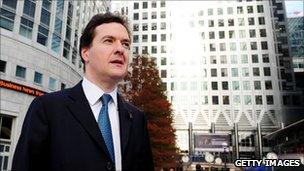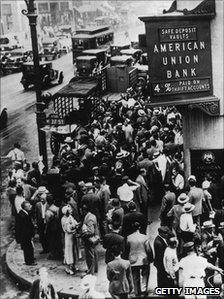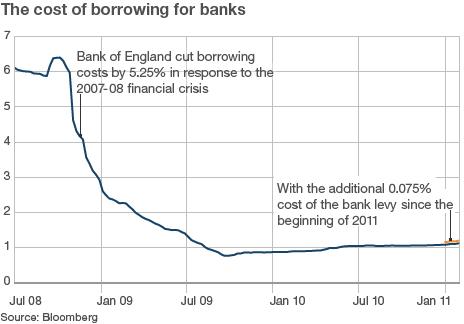Q&A: Bank levy explained
- Published

The chancellor wants banks to pay their "fair share"
The government says it will increase the levy on banks from 0.078% to 0.088% from 1 January.
So what is the levy? What's really at stake? And why raise the rate now?
What is the bank levy?
What's it for?
So will this help deal with the budget deficit?
What's risky about the type of borrowing that the government wants to discourage?
Why are retail deposits exempt from the levy?

Before the financial crisis, bank runs were considered a thing of the past
So why not just insure all the banks' borrowings?
Why is the first £20bn of debts exempt from the tax?
Why is the tax rate lower on long-term debts?
Will the levy really discourage banks?

Why did the government want to phase the levy in?
So why did the government change its mind?
Why is the government raising the rate again?
Which banks will have to pay most?
- Published8 February 2011